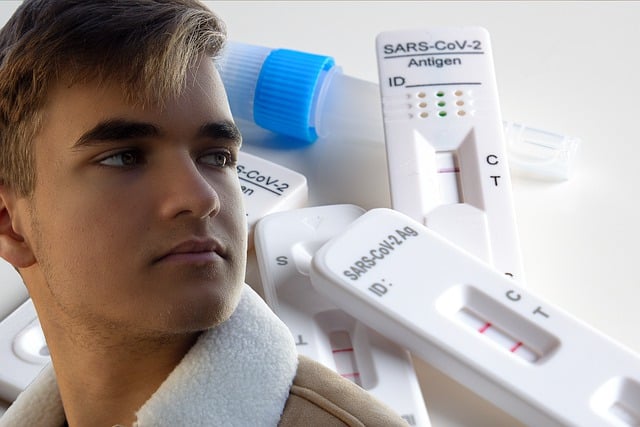Diabetes blood tests are essential tools for managing the condition, monitoring glucose levels, and preventing complications. Preparation involves fasting and a calm mindset, while testing requires cleaning the skin, pricking the fingertip, and using a strip to check blood sugar levels. Results should be interpreted with healthcare providers to adjust lifestyle or medication as needed. Regular monitoring allows diabetics to make informed decisions about diet, exercise, and treatment, ensuring proactive health management.
Stay in control of your diabetes with regular blood tests. This comprehensive guide explores the importance of diabetes blood tests, providing insights into why they are essential for managing your condition effectively. Learn how to prepare and perform these tests at home, and gain a deeper understanding of your results. By empowering yourself with knowledge, you can make informed decisions about your health and stay on top of your diabetes.
- Understanding Diabetes Blood Tests: Why They Are Essential
- How to Prepare for and Perform Regular Blood Tests
- Interpreting Results: Managing Your Diabetes Effectively
Understanding Diabetes Blood Tests: Why They Are Essential
Diabetes blood tests are crucial tools for managing this chronic condition effectively. These tests monitor your blood sugar levels, providing invaluable insights into how your body is processing glucose. By regularly conducting these tests, individuals with diabetes can gain a deeper understanding of their condition’s dynamics. This knowledge empowers them to make informed decisions about their diet, exercise, and medication, ensuring they stay within a healthy blood sugar range.
The significance of diabetes blood tests lies in their ability to detect fluctuations in blood sugar levels early on. They help identify trends and patterns, allowing for prompt adjustments to one’s diabetes management plan. Moreover, these tests are essential for assessing the effectiveness of treatment strategies, tracking progress, and preventing potential complications associated with uncontrolled diabetes.
How to Prepare for and Perform Regular Blood Tests
Preparing for a Diabetes blood test is crucial for accurate results. First, ensure you haven’t eaten or drank anything besides water for at least 8-12 hours before the test. This fast allows for a more precise reading of your blood sugar levels. On the day of the test, find a comfortable position and remove any jewelry or items that might interfere with the procedure. It’s important to stay calm as stress can temporarily affect blood glucose levels.
During the test, a healthcare professional will clean your skin and insert a small needle into your fingertip to draw a drop of blood. This is usually quick and painless. The blood is then placed on a testing strip which reacts with specific chemicals to indicate your blood sugar level. Always ask questions if you’re unsure about any part of the process, and remember to dispose of used needles safely according to local regulations.
Interpreting Results: Managing Your Diabetes Effectively
Interpreting your diabetes blood test results is a crucial step in managing your condition effectively. These tests, typically measuring blood glucose levels, provide valuable insights into how your body is processing sugar. Normal blood glucose levels usually fall within a range of 70 to 130 mg/dL (milligrams per deciliter). However, for those with diabetes, these numbers can vary significantly. If your results consistently show higher-than-normal readings, it may indicate impaired glucose tolerance or insulin resistance, prompting discussions with your healthcare provider about lifestyle changes or medication adjustments.
Regular monitoring allows you to track trends and make informed decisions. For instance, if your blood sugar levels tend to spike after certain meals, this information can guide dietary choices. Conversely, if exercise lowers your numbers, it reinforces the positive impact of physical activity on diabetes management. By understanding these patterns, you gain control over your health, enabling proactive adjustments to maintain stable blood glucose levels and prevent complications associated with poorly managed diabetes.
Regular diabetes blood tests are a powerful tool for managing your health. By understanding these tests, preparing appropriately, and interpreting results thoughtfully, you can take control of your diabetes and live a healthier life. Embrace the process as an essential part of caring for yourself, enabling you to make informed decisions about your treatment and overall well-being.
